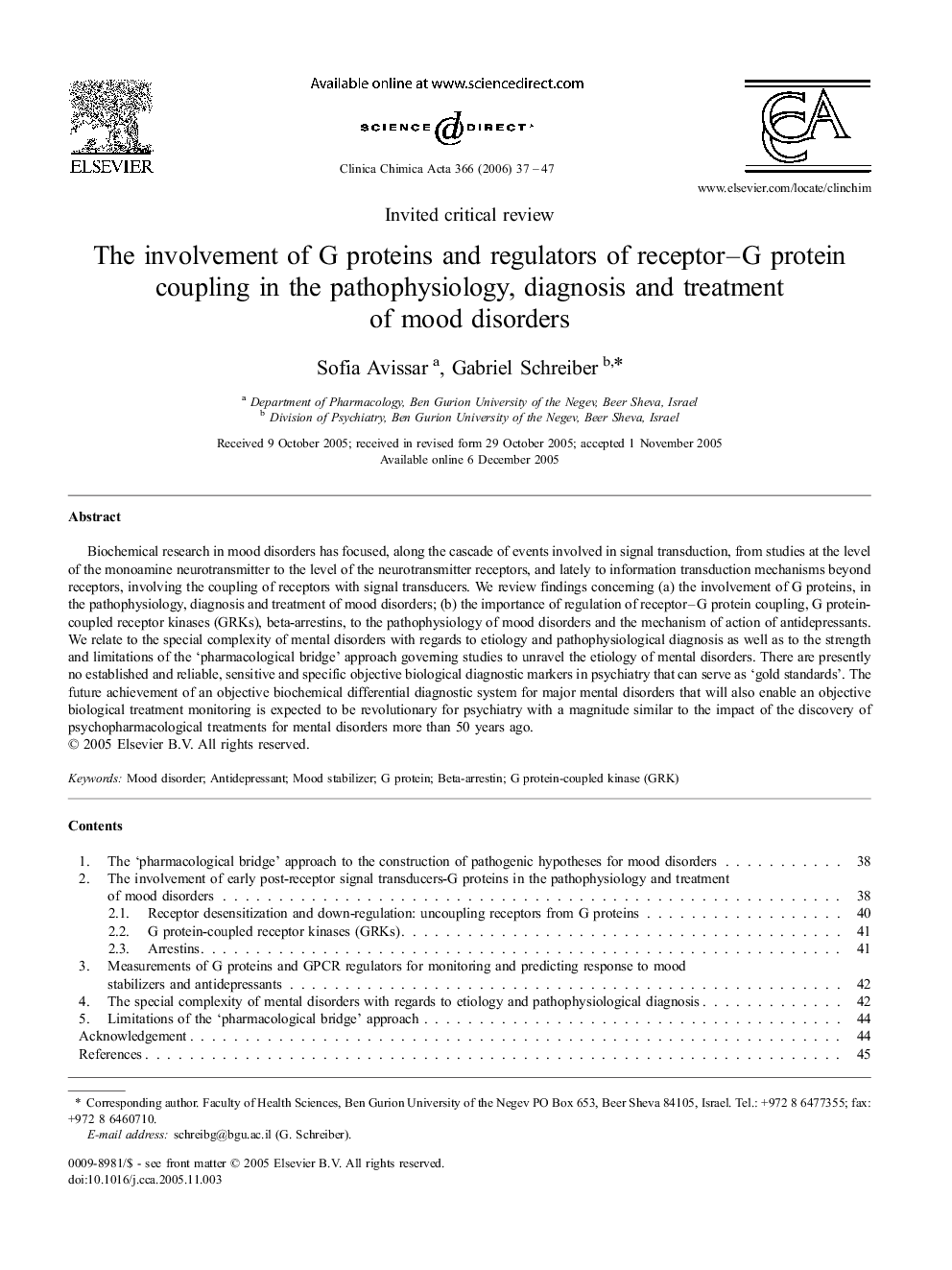| Article ID | Journal | Published Year | Pages | File Type |
|---|---|---|---|---|
| 1968154 | Clinica Chimica Acta | 2006 | 11 Pages |
Biochemical research in mood disorders has focused, along the cascade of events involved in signal transduction, from studies at the level of the monoamine neurotransmitter to the level of the neurotransmitter receptors, and lately to information transduction mechanisms beyond receptors, involving the coupling of receptors with signal transducers. We review findings concerning (a) the involvement of G proteins, in the pathophysiology, diagnosis and treatment of mood disorders; (b) the importance of regulation of receptor–G protein coupling, G protein-coupled receptor kinases (GRKs), beta-arrestins, to the pathophysiology of mood disorders and the mechanism of action of antidepressants. We relate to the special complexity of mental disorders with regards to etiology and pathophysiological diagnosis as well as to the strength and limitations of the ‘pharmacological bridge’ approach governing studies to unravel the etiology of mental disorders. There are presently no established and reliable, sensitive and specific objective biological diagnostic markers in psychiatry that can serve as ‘gold standards’. The future achievement of an objective biochemical differential diagnostic system for major mental disorders that will also enable an objective biological treatment monitoring is expected to be revolutionary for psychiatry with a magnitude similar to the impact of the discovery of psychopharmacological treatments for mental disorders more than 50 years ago.
